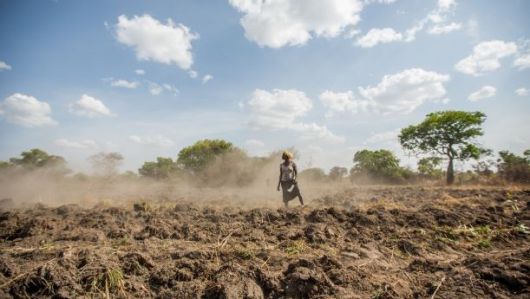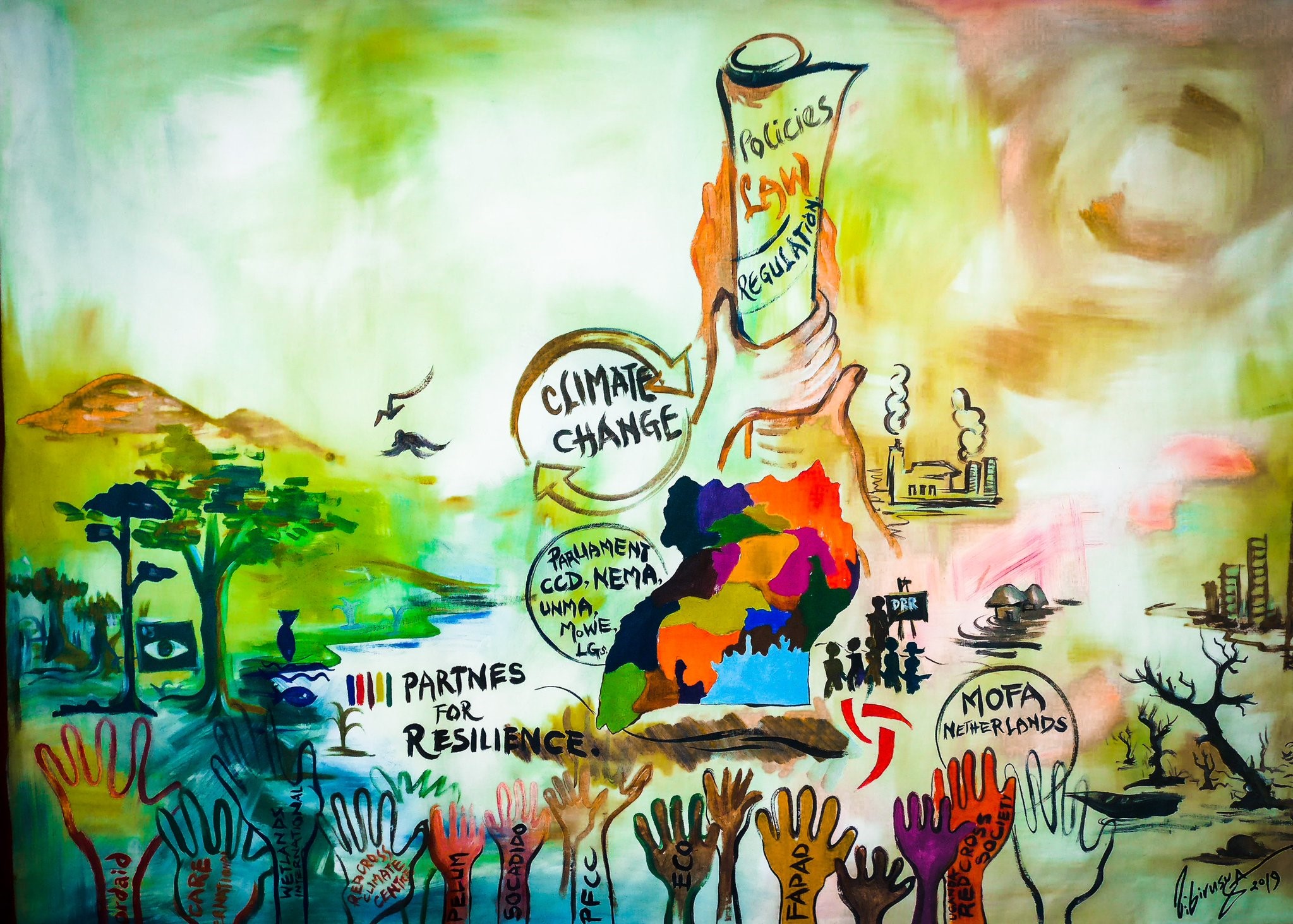14/06/2021 - Parliament of Uganda passes the Climate Change Bill 2020: it is now an Act

Committing to international climate agreements
Extreme weather events and slow-onset processes including drought and rise in water levels are among some of the visible signs Uganda experiences as a result of climate change. These have increased loss and damage to the natural environment, infrastructure and humans alike. To address climate change challenges, Uganda signed up to various international protocols such as the United Nations Framework Convention on Climate Change and the Paris Agreement on Climate Change which seek to strengthen the global response to climate change by keeping a global temperature rise this century below 2 degrees Celsius. These frameworks require state parties to reach certain targets- most of which are voluntary in nature- and therefore, it is critical for countries to formulate enabling laws to support the implementation of such international frameworks.
The country lacked a legal framework to manage climate change interventions, an obstacle in translating the identified policy priorities into implementable actions with tangible climate change benefits to affected communities and the country as well. The Climate Change Act will strengthen the legal and regulatory framework for climate change response in Uganda.
The National Climate Change law, therefore, seeks to give the force of law in Uganda to the United Nations Framework Convention on Climate Change, the Kyoto Protocol, and the Paris Agreement; to provide for climate change response measures; participation in climate change mechanisms; to provide for measuring of emissions, reporting and verification of information; to provide for institutional arrangements for coordinating and implementing climate change response measures; to provide for financing for climate change; and other related matters.
PfR's journey
The journey for this act started in 2016. In the period 2010-2015, while strengthening civil society to implement concrete Integrated Risk Management/ Disaster Risk Reduction measures at local level, Partners for Resilience came face to face with the reality of policy gaps that needed to be addressed and the need to have climate change adaptation, ecosystem management and restoration and disaster risk reduction (integrated risk management) included in the law. This was an essential step if communities were to sustain the gains from the programme.
In 2016, Partners for Resilience started implementation of the strategic partnership programme with the Netherlands government (2016-2020): the Dialogue and Dissent programme. The programme focussed on strengthening the capacity of civil society organisations (CSOs) to engage in dialogues with stakeholders for improved disaster risk reduction policies, practices and investments. In March 2017, the climate change department of the Ministry of Water and Environment drew a road map to be followed to draft the Climate Change Bill for Uganda.
In June 2017, with support from PfR, selected members of parliament started a discussion with the Climate Change department about the content of the Bill, and a draft bill was developed. In the same year PfR supported members of parliament to hold regional consultations about the draft bill and also commissioned a study to establish the gaps in existing policies related to integrated risk management. The report was used to hold discussions with other CSOs and draft a position paper which formed the basis of the lobby trajectory.
"The climate change challenges we face as a country outweigh the adequacy of our actions. This Act is timely in making determined efforts to deal with the climate crisis and will provide the country with institutional arrangements for implementing and coordinating climate change measures in Uganda".
Rachel Kyozira - Cordaid Programme Manager Resilience/ country lead Partners for Resilience Uganda
The first draft was discussed in parliament with about 45% of CSO views included but this was rejected at cabinet level and sent back to parliament. Another round of consultations with parliament and all stakeholders to make amendments was instituted. Again, PfR supported the consultations and in the final drafting of the Bill 64% of CSO views were represented in the Act.
Throughout the drafting process, PfR trained policy makers, CSOs, media, local governments and communities on Climate change adaptation, Disaster Risk Reduction and Ecosystem Management and restoration (Integrated Risk Management) which contributed greatly to the success of the lobby trajectory. PfR also contributed to providing evidence on Integrated Risk Management in practice and through the practices in Teso, Karamoja, Otuke, Elgon region and South Western Uganda contributed to the National Adaptation Plan for the country.

Painting showing the journey from the joint efforts of civil society organisations to achieving the acceptance of the Climate Change Bill in Uganda
The Act paves the way to climate action in Uganda
The Act is providing for crucial next steps. It leads to a coordinated approach to deal with climate change responses. This will require a framework and action plan that will guide budgeting, planning, financing and monitoring climate change programmes at the national and sub-national level. It also functions as a guide to measure emissions, reporting and verification of information which are essential components of any climate change strategy. It is becoming increasingly necessary to have reliable and verified data on emissions to develop context-specific interventions. This data will be available through the GreenHouse Gas inventory.
The Act will ensure that Uganda adheres and complies with the UNFCCC reporting mechanism by producing periodic reports as required to give the country status on climate change. The periodic reports provide information on greenhouse gas inventories,and measures to mitigate and facilitate adequate adaptation to climate change.
The Act streamlines the institutional arrangements in terms of reporting, the role of the Policy Committee on Environment, the roles of the Lead Agencies of Government in key climate-sensitive sectors, and the local governments. It clearly outlines the mandate of the Climate Change Department in its function of coordinating, monitoring and evaluating the programmes and actions of the government on climate change. Once this is assented to by the president and parameters for implementation are put in place, communities affected by the impacts of climate change and Uganda as a whole stand to make tremendous strides in minimising losses as a result of a changing climate.





